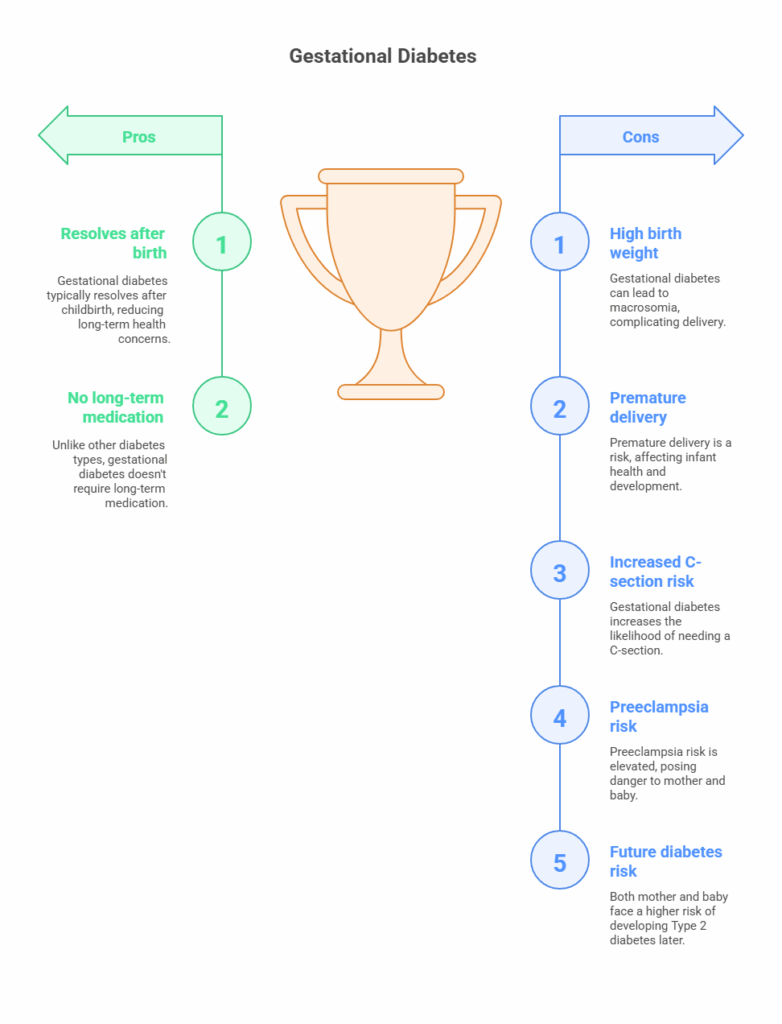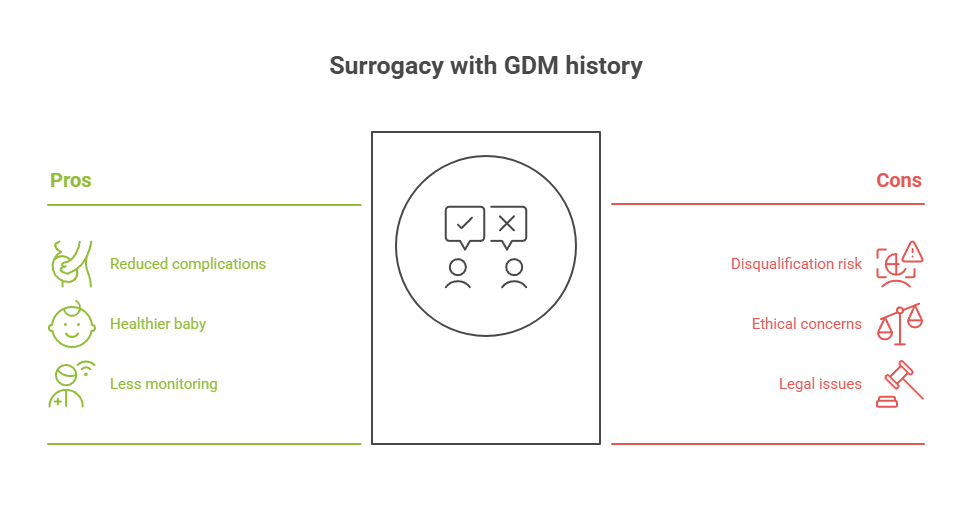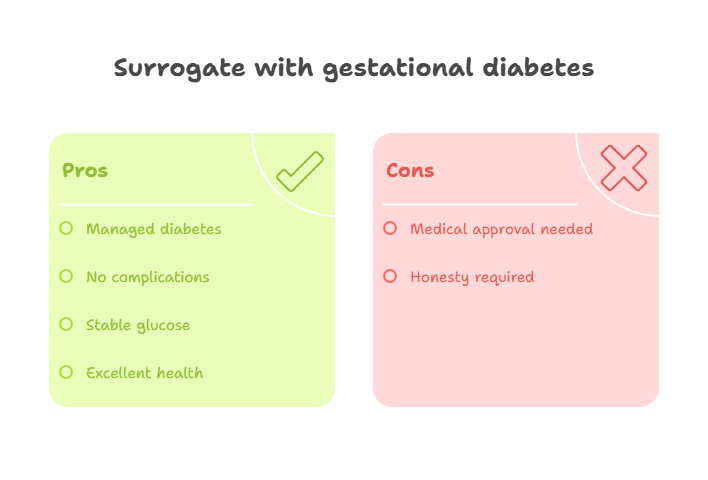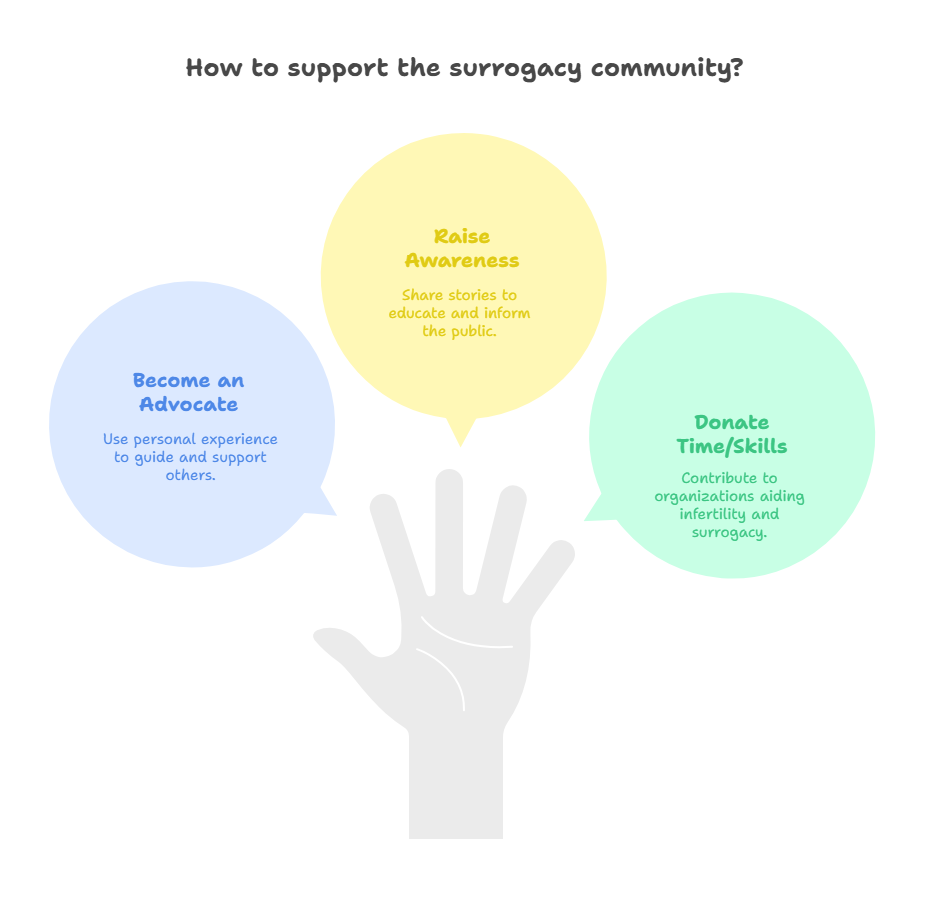Short answer: In most cases, no. If you’ve previously experienced gestational diabetes (GDM), you may be disqualified from becoming a surrogate with many surrogacy agencies and fertility clinics. While every case is reviewed individually, gestational diabetes is typically considered a medical risk factor that can affect both the surrogate and the baby. Let’s explore why this is the case, and what exceptions might exist.
What Is Gestational Diabetes?
Gestational diabetes is a type of diabetes that occurs during pregnancy. It causes high blood sugar levels that can affect the health of both the mother and the baby. Unlike Type 1 or Type 2 diabetes, gestational diabetes typically develops during the second or third trimester and usually resolves after birth. However, it increases the risk of complications during pregnancy and delivery.
Common complications include:
- High birth weight of the baby (macrosomia)
- Premature delivery
- Increased chance of needing a C-section
- Increased risk of preeclampsia
- Future risk of developing Type 2 diabetes for both mother and baby

Why GDM Affects Surrogacy Eligibility
Surrogacy agencies and fertility clinics are responsible for ensuring that both the surrogate and the baby remain healthy throughout the process. Because gestational diabetes increases the risk of complications, many programs have strict medical screening criteria. A history of gestational diabetes is often considered a red flag, especially if the episode was severe, required insulin, or occurred in more than one pregnancy.
Here are some of the reasons why a history of GDM can be disqualifying:
- Higher chance of developing GDM again in a subsequent pregnancy
- Risk to the intended parents’ baby during gestation
- More intensive medical monitoring required
- Ethical and legal concerns about knowingly entering a high-risk pregnancy

Are There Any Exceptions?
Yes, in rare cases, some clinics or intended parents may accept a surrogate with a history of mild gestational diabetes — especially if:
- It was managed well through diet and exercise only (no insulin)
- There were no major pregnancy or delivery complications
- Medical records show stable glucose levels and positive outcomes
- The surrogate’s overall health is otherwise excellent
In such cases, a doctor’s approval and additional medical evaluations may be required. It’s important to be honest during your surrogate application process so that professionals can make informed decisions.

Alternative Ways to Support Intended Parents
If you’re not eligible to be a surrogate due to past gestational diabetes, there are still meaningful ways you can support the surrogacy community:
- Become a surrogate advocate or mentor for others
- Help raise awareness and share your story
- Donate your time or skills to organizations that support infertility and surrogacy

Final Thoughts
Gestational diabetes is a common and manageable condition, but it does have long-term implications for surrogate eligibility. While having had GDM does not automatically disqualify every woman, it significantly lowers the chances of being approved as a surrogate due to the associated risks.
If you’re interested in becoming a surrogate and have a history of gestational diabetes, we recommend consulting with a surrogacy agency or fertility specialist. They can review your medical history and advise you on your options. Regardless of eligibility, your desire to help others build a family is deeply appreciated and incredibly powerful.
Curious whether you’re eligible to become a surrogate? Try our free BMI calculator or check out our requirements page to learn more.




